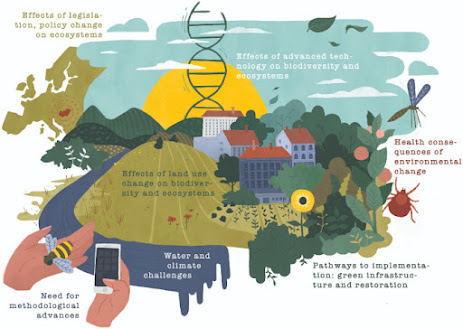Újabb cikk a Biological Conservation-ben
Conservation biology research priorities for 2050: A Central-Eastern European perspective
Csákvári Edina, Fabók Veronika, Bartha Sándor, Barta Zoltán, Batáry Péter, Borics Gábor, Botta-Dukát Zoltán, Erős Tibor, Gáspár Judit, Hideg Éva, Kovács-Hostyánszki Anikó, Sramkó Gábor, Standovár Tibor, Lengyel Szabolcs, Liker András, Magura Tibor, Márton András, Molnár V Attila, Molnár Zsolt, Oborny Beáta, Ódor Péter, Tóthmérész Béla, Török Katalin, Török Péter, Valkó Orsolya, Szép Tibor, Vörös Judit, Báldi András
One of the main goals of the EU Biodiversity Strategy for 2030 is to avoid further loss of biodiversity and to restore ecosystems. These efforts can be facilitated by compiling the main research topics related to conservation biology to provide new evidence for the most urgent knowledge gaps, and publicise it to researchers, research funders and policy makers. We used the possible future statements from the Hungarian Environmental Foresight Report for 2050 which identified region-specific problems. To highlight likely future environmental and conservation questions, in this study we asked researchers from the fields of ecology and conservation to define research questions addressing these future statements in line with international research trends and challenges.
The study resulted in fourteen priority research topics, split into seven clusters relevant to biological conservation that should be targeted by stakeholders, primarily policy makers and funders to focus research capacity to these topics. The main overarching themes identified here include a wide range of approaches and solutions such as innovative technologies, involvement of local stakeholders and citizen scientists, legislation, and issues related to human health. These indicate that solutions to conservation challenges require a multidisciplinary approach in design and a multi-actor approach in implementation. Although the identified research priorities were listed for Hungary, they are in line with European and global biodiversity strategies, and can be tailored to suit other Central and Eastern European countries as well. We believe that our prioritisation can help science–policy discussion, and will eventually contribute to healthy and well-functioning ecosystems.


Nincsenek megjegyzések:
Megjegyzés küldése